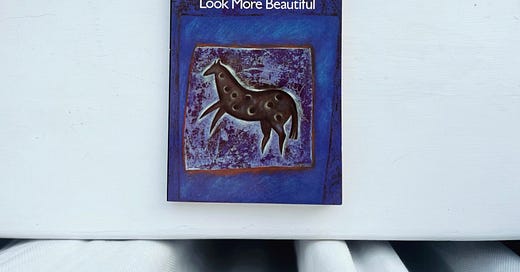For the month of August I’ll be participating in The Sealey Challenge and attempting to read a book of poetry every day (or at least a poem or two), and every day I’ll be sharing a poem with you. If poetry isn’t your thing, a month isn’t too long a time, I promise. But if it is, I hope this series affords you an opportunity to discover some new favourites or revisit some old ones.
The 18th of August’s poem is ‘We Alone’ by Alice Walker, which was first published in her 1985 collection, ‘Horses Make a Landscape Look More Beautiful’ (The Women’s Press).
We Alone
We alone can devalue gold
by not caring
if it falls or rises
in the marketplace.
Wherever there is gold
there is a chain, you know,
and if your chain
is gold
so much the worse
for you.
Feathers, shells
and sea-shaped stones
are all as rare.
This could be our revelation:
To love what is plentiful
as much as
what's scarce.I read this poem and thought about how many wars have been waged/ are being waged in the name of greed and consumption. Those in positions of power might create an enemy to convince you that their violence is justified or necessary, but it’s easy to see who really gains.
The demand for ‘resources’, whether they be gold, oil, people, or anything else of monetary value has always justified the worst exploitation, and, even if we imagine we haven’t, we have all bought into it to some degree. How readily do we spend money to accumulate that which we believe to be worth something? How readily do we justify that which will earn us more money- or allow us to keep hold of just a bit more of it- so often without consciously working our way back up the chain to determine just how much exploitation has occurred in the process?
But imagine if we could love and desire just as fervently that upon which no monetary value has been placed.
Do you remember the awe you felt when you discovered sea glass? When you heard the sea whistling through a shell? Gathered daisies to make chains? Blew on dandelions and wished for what felt like the world? No one could have told you then that anything else was worth more than that.
‘This could be our revelation: To love what is plentiful as much as what's scarce.'
See you on day nineteen,
Tasnim




